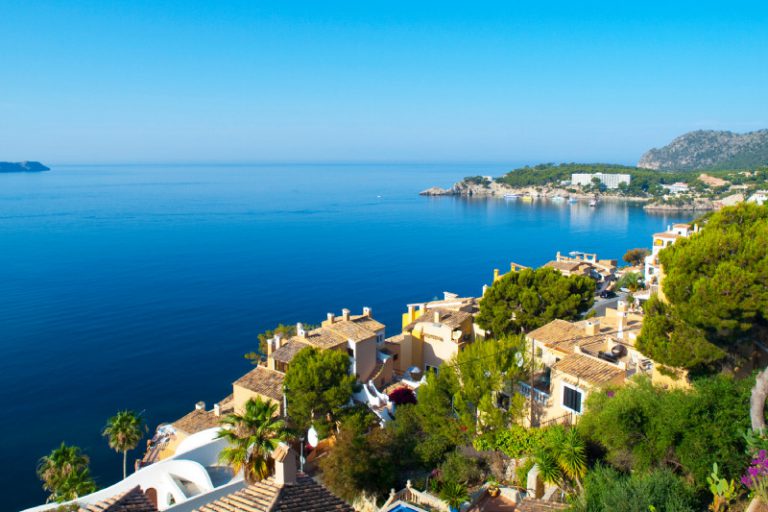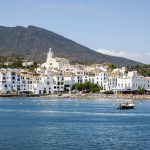Last updated on October 28th, 2019 at 04:14 pm.
People buy property in Spain for many different reasons. Often they begin by buying an apartment or smaller property as a holiday home. Then, perhaps as the time draws near to retirement, they begin to consider what it might be like to take it one step further and live in Spain as a resident.
If you do wish to buy property in Spain for residency purposes then you must take advice and do your research. Spain is a wonderful country. However, moving abroad to live is a very big step and what can seem an attractive proposition when you’re there on holiday can turn out to be something quite different in reality.
Adapting your property
Many people move out permanently into property they originally bought as a holiday home. This has many advantages. You know exactly what to expect, the restaurants to go to, where to get your shopping and who your neighbours are.
There might not be any surprises but the house you bought to live in for six weeks a year might not be as suitable for all-year round occupation. However, you might be able to make some alterations to the property to make it fit your new needs better.
Do make sure that if you have building work done, you obtain the correct licences . All home improvements in Spain require permission from the town hall. Not to do so risks a fine or the obligation to return the property to its original condition. You will also need to obtain permission from your community of owners if you belong to one.
Moving house
For some people it just isn’t possible to make that little bungalow into their full-time residence and a move is needed. Again, you should make sure you follow legal advice when buying a property in Spain and take into consideration the additional costs there are in buying and selling.
Your neighbourhood is particularly important when it comes to where you live. Most people who do buy property for residency prefer to live somewhere amongst other residents. It can feel quite lonely in the winter if you are based on an urbanisation amongst empty houses.
Take into consideration how your needs will change in future years. It may seem attractive to live out in the country now but will you feel the same if you are no longer able to drive and have no public transport within reach?
Consider your needs during the winter. You might have only spent time out in Spain during the spring, summer and autumn months. Spain is cold in the winter and you will need some form of heating to make your winter months enjoyable.
Once you’ve bought
Once you have moved into your property, then you should start to plan what arrangements you need to make to be legal residents in Spain. You should already have informed the necessary authorities in the UK of your move. This includes your doctor and the tax office.
Now, you need to begin to set up everything you need in Spain. There is a lot to do. However, the good news is that it doesn’t all need to be done at once.
Priority 1
Residencia – you should already have your NIE as you need one in order to buy a house in Spain. If not, you will need this prior to obtaining your certificate of residency. You can apply for both together at the national police station in your local area. You will need to prove that you can sustain yourself financially in Spain and that you will have health care here.
Padron – This is the local town register that you will need to sign on in order to obtain Spanish state health care, enrol your child in school or receive other local advantages such as a bus pass or library card. It also helps your local area keep up-to-date records which ensures that they receive the correct amount of government funding.
Health care – please do plan this before leaving your home country – make sure that you have some arrangements in place as you will need to prove that you have access in order to receive residency here.
You will need to have either your own private health insurance or be eligible for Spanish national health via a SIP card. If you are on a state pension then you should be entitled to a SIP card. If you are contracted to work in Spain or are autonomo then you should also be entitled.
There is also a government run health insurance scheme to which you can contribute monthly. This can be an alternative if you are an early-retiree and can’t obtain private health insurance because you have a previous condition. It is called the ‘Convenio Especial’ and although the scheme is nation-wide it is managed by each autonomous region and costs around €60 a month each.
Priority 2
Re-registering your car– You do have a little longer to sort out your transport arrangements in Spain. You will need to decide whether to bring a car over from your home country or buy one here. If you do bring your car over you must re-register it in Spain and if you are coming from the UK then you will need to change the headlights.
Be aware that second hand cars are expensive in Spain in comparison to some other European countries. Even though it is expensive to transfer to Spanish plates you might find it is worth your while.
Your driving licence will also need changing to a Spanish licence at some point. Although you have at least two years to do this from being a resident, if you know you’re staying, there seems to be little point in delaying. The authorities are now tightening up on driving licences and you are at risk of being fined.
Fiscal resident – The majority of people who become resident in Spain must complete a resident tax return before the end of June each year. This annual tax declaration then provides the evidence that you are a fiscal resident in Spain and is beneficial to make even if you have no tax to pay.
Priority 3
Spanish will – It’s not a pleasant subject but you really should make a Spanish will if you are going to be a resident in Spain. It will make life easier for those who inherit your property and is even more important now with a new EU ruling. This stipulates that residents must follow the succession laws of the country they live in unless indicating otherwise on their will.
So, for example, if you are a British national and you indicate on your will that you will follow British succession laws, you can leave your property to whoever you wish. However, if you don’t then Spanish succession laws will apply when you die which means that two-thirds of your inheritance will automatically go to your children and only one third to your spouse.
Of course, there are also all those other more enjoyable arrangements that you will be making all the time. Joining a health club, registering in your local library, becoming a member of other societies. Little by little you will find yourself making arrangements and establishing your roots.
Hopefully, once all the paperwork is finalised, you will still think back with delight at your decision to buy property for residency and opt for a life in Spain.
2 comments
21 July, 2018 2:42 pm
Hello Mrs,
Hello Mrs,
Can i know if once i bought a house in Spain, i ll get the Residencia.
Thanks in advance
24 July, 2018 7:45 am
Hi
Hi
There is no guarantee that after buying a property you will be accepted as a resident. You need to have proof of income and health insurance as well.






Leave a comment